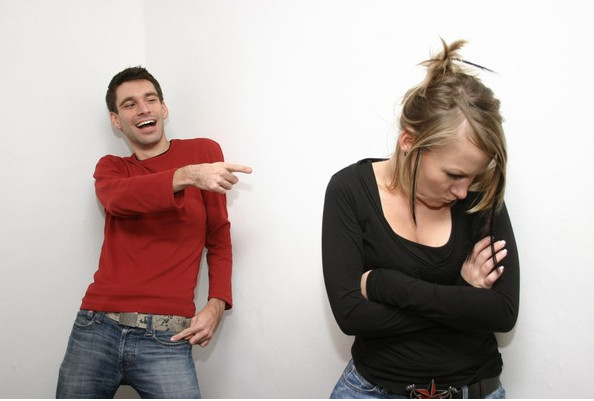Explain why people like to see others fail
Let's confess! You must have once . chuckled when you saw a colleague or friend in trouble at work, right?
Find out why we like to see other people fail
If you are right, don't rush to panic, because there are actually many people who are . bad-tempered like you. Scientists call this psychological phenomenon Schadenfreude - the phenomenon of "Feeling from other people's unhappiness."
So what is the emotional experience of 'happiness on others' misfortune ' or Schadenfreude really?
The origin of Schadenfreude - "bad" phenomenon
Schadenfreude is German, describing someone's misfortune to make others happy.

Dr. Wilco W.van Dijk from Leiden University (Netherlands) conducted a study to provide a solution to this emotional state.
Dijk selected 70 students (40 females and 30 males) to conduct experiments, including those who were judged to be less confident.
The candidates were given an interview of a high-achieving student, with the potential to get a great job. Later, these students continued to see another interview that revealed that the elite students had huge problems in their careers and study.

Lack of confidence makes us . happier when others fail.
At the end of each experiment, these 70 students were asked about their level of happiness. And the results showed that students who lack confidence have a higher "pleasure" level when they see the other student in trouble.
Subsequently, Dijk and his colleagues sought to encourage ideas for the number of candidates to have more motivation to assert themselves, then perform the experiment again. And this time, the "happy " level became much lower.

Even jealousy .
In another study in 2009, scientists also found a link between jealousy and Schadenfreude. Accordingly, the feeling of jealousy will activate the anterior cingulate cortex, which makes you feel "stinging" when witnessing other people better than you.
However, if the person has a failure, the reward area in the brain is immediately activated, releasing the hormone oxytocin - a happy chemical - making you feel better and relieved.
Are you really a "bad guy" when you have such experiences?
According to Van Dijk, 'Schadenfreude' is a very normal psychological state that everyone can experience under different circumstances. So experiencing such emotions does not mean that you are a bad person.

He even said that it is the feelings of happiness that will help you feel more confident and at the same time motivate you to prove yourself, then dispel this negative emotion.
However, if you simply feel happy about other people's misfortunes without any sympathy or sympathy, that's not good at all.
According to Van Dijk's explanation, such people have problems not only in confidence, but also in life skills and social interaction.

If the frequency you feel 'Schadenfreude' is too frequent, then perhaps you need to be more active and communicate.
- Mission Mars before the risk of failure
- Can not explain the most bizarre cases of human history
- People become, defeat is due to genes?
- Why do people like to try new things?
- Hypothesis explaining the phenomenon of shivering after urinating in men?
- Evolution in mice can explain infertility in humans
- May lose the chance because the tie is blue and purple
- Video: Explain three Newton's laws by bike
- People born without brains still live healthy, IQ is higher than ordinary people
- Why treating tuberculosis fail?
- Scientists explain the phenomenon of sex change in fish
- Expectations for science 2013
 'Fine laughs' - Scary and painful torture in ancient times
'Fine laughs' - Scary and painful torture in ancient times The sequence of numbers 142857 of the Egyptian pyramids is known as the strangest number in the world - Why?
The sequence of numbers 142857 of the Egyptian pyramids is known as the strangest number in the world - Why? History of the iron
History of the iron What is alum?
What is alum?